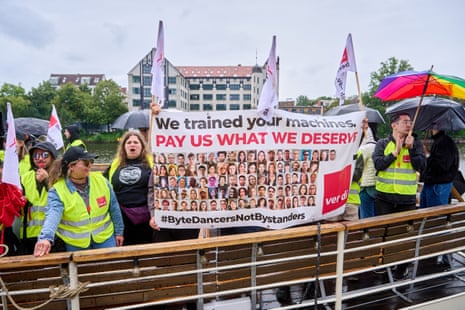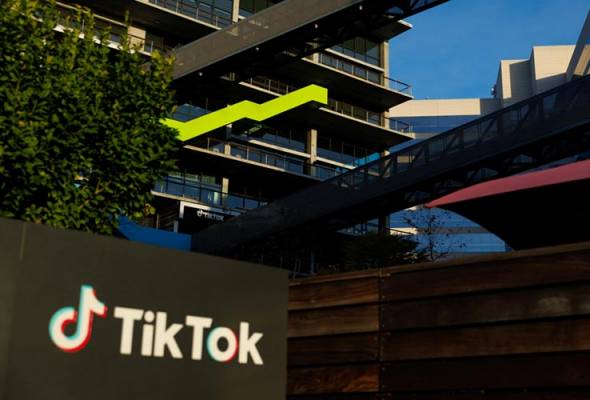Workers Protest as TikTok Replaces Berlin"s Trust & Safety Team with AI
In a controversial move, TikTok has laid off its Trust & Safety Team in Berlin, replacing human moderators with artificial intelligence systems. The decision, made public earlier this week, has sparked protests among former employees who are demanding severance pay and expressing concerns over the implications of relying on AI for content moderation. This development raises questions about labor rights in the tech industry and the broader implications for user safety on social media platforms.
Background & Context
The Trust & Safety Team in Berlin was responsible for monitoring content on TikTok, ensuring that it adhered to community guidelines and was safe for users. This team played a crucial role in managing the platform"s response to issues like hate speech, misinformation, and harassment. As TikTok continues to grow in popularity, the pressure to maintain a safe environment for its vast user base has intensified.
However, the decision to replace human moderators with AI comes amid a broader trend in the tech industry where companies are increasingly automating roles traditionally held by humans. Critics argue that while AI can process vast amounts of data quickly, it lacks the nuanced understanding that human moderators bring to complex social issues. The layoffs have not only affected the job security of the moderators but have also raised alarms about the potential decline in the quality of content moderation.
Key Developments
Protests erupted outside TikTok"s Berlin office as former employees rallied to voice their frustration over the layoffs. Many of the protesters have expressed feelings of betrayal, citing their dedication to the company"s mission of creating a safe online space. "We worked tirelessly to protect users from harmful content, and now we"re being replaced by machines that lack empathy," said one former moderator, who preferred to remain anonymous.
The protests have drawn attention to the need for fair severance packages, as many employees were left without adequate compensation following their sudden dismissal. TikTok has yet to publicly address the demands for severance pay, leaving many former employees in a precarious financial situation. The decision to automate the Trust & Safety Team may also raise regulatory concerns, as lawmakers and advocacy groups closely monitor how platforms manage user safety.
\n\n
Image for Workers Protest as TikTok Replaces Berlin"s Trust & Safety Team with AI
Broader Impact
The implications of TikTok"s decision extend beyond the immediate job losses in Berlin. Experts warn that the reliance on AI for content moderation could lead to an increase in harmful content slipping through the cracks. "AI lacks the ability to understand context, which is vital in moderating content that may be harmful or misleading," noted Dr. Sarah Klein, a media ethics scholar. "This shift could erode user trust in the platform if harmful content is not effectively managed."
This situation mirrors recent developments in other industries where automation has led to significant job losses and raised ethical concerns. For instance, the recent layoffs in various sectors, including fast food and manufacturing, have sparked debates on the future of work in an increasingly automated economy. As previously reported, similar situations have unfolded globally, highlighting the urgent need for policies that protect workers affected by technological advancements.
What"s Next
As the protests continue, attention turns to TikTok"s next steps and how it will address the backlash from former employees and the public. Analysts speculate that the company could face increased scrutiny from regulators and advocacy groups, particularly concerning user safety and labor rights. Additionally, the effectiveness of AI in content moderation will likely be assessed in the coming months, as stakeholders demand transparency regarding how these systems operate.
Furthermore, the outcome of this situation may influence other tech companies contemplating similar automation strategies. If TikTok"s reliance on AI leads to a decline in user safety or trust, it could prompt a reevaluation of current practices across the industry. Advocates for workers" rights are also expected to push for stronger regulations to protect employees in the face of automation, ensuring that the human element in content moderation is not entirely lost.

Image for Workers Protest as TikTok Replaces Berlin"s Trust & Safety Team with AI


![[Video] France opens applications for 10-month national service for youth](/_next/image?url=%2Fapi%2Fimage%2Fthumbnails%2Fthumbnail-1768220506872-i17id8-thumbnail.jpg&w=3840&q=75)




![[Video] Gunfire between Iraqi security forces and Sadr militias in Baghdad](/_next/image?url=%2Fapi%2Fimage%2Fthumbnails%2Fthumbnail-1768343508874-4redb-thumbnail.jpg&w=3840&q=75)
